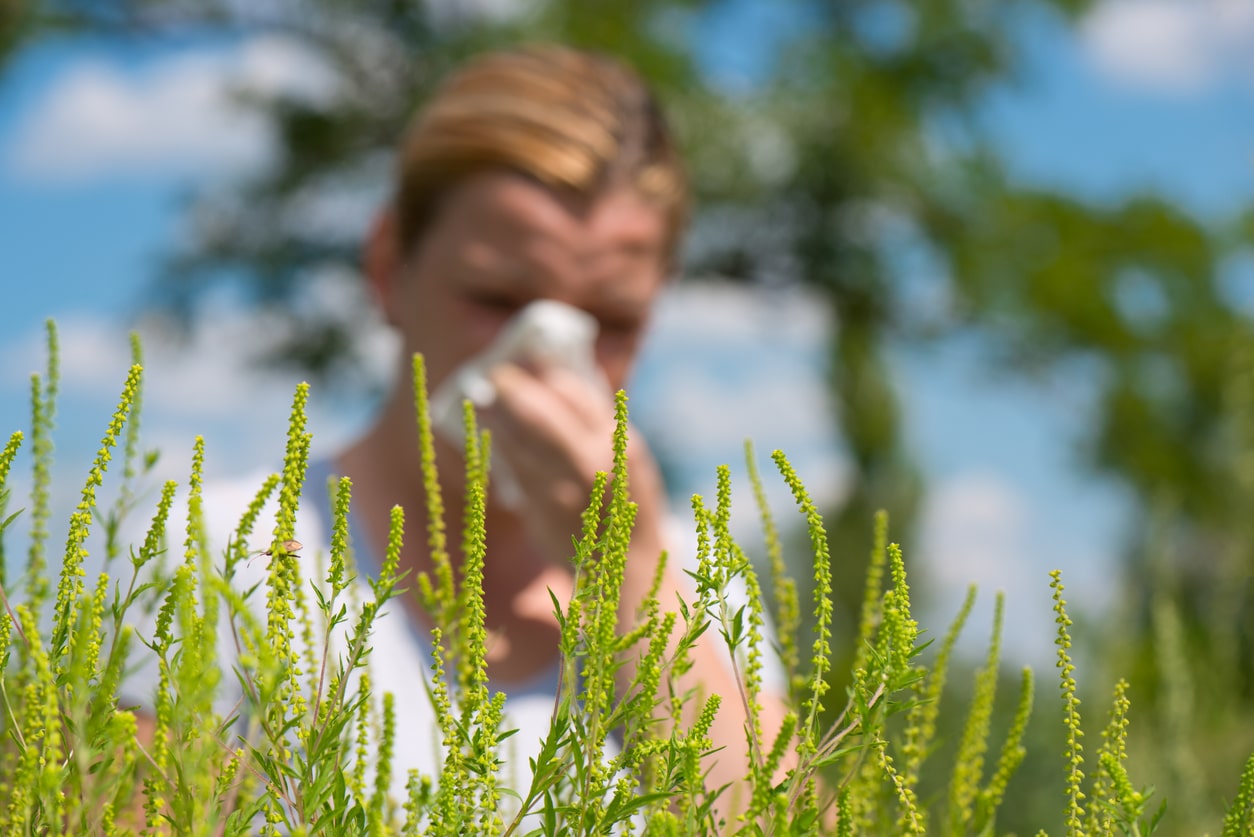Fall in South Carolina brings cooler temperatures and apple cider-flavored baked goods from the Charleston Farmers Market, but it can also bring about seasonal allergies. One of the main culprits of fall allergies is ragweed pollen. Ragweed plants mature in mid-summer and produce large amounts of pollen from early fall until the first frost.
In the late summer and early fall, nearly 50 million people in the United States experience allergy symptoms from ragweed pollen. People allergic to ragweed pollen will likely experience one or more of the following symptoms:
- Sneezing
- Runny or congested nose
- Headaches
- Red or watery eyes
- Scratchy throat
- Aggravated asthma symptoms
Ragweed pollen is not likely going to go away anytime soon, but there are ways you can manage your symptoms, including:
- Avoidance
- Cleaning
- Allergy medication
Let’s look at each of these a little more closely.
Avoiding Ragweed

Avoiding ragweed is one effective way of reducing your allergy symptoms. A couple of tips for avoiding ragweed pollen include:
- Watch the pollen count. Keep an eye on the pollen count in your area and aim to stay indoors or avoid frequent outdoor activities when the pollen count is high.
- Close the windows. Pollen can fly into your house through open windows and doors. Keep your windows and doors shut during ragweed season and rely instead on air conditioning to keep the temperature down.
Cleaning to Prevent Ragweed
Cleaning is a very effective method of managing your ragweed symptoms. Ragweed can hide on your clothes, hair, pet fur, furniture and more. Pick a time every week to clean the surfaces of your home, and make sure to shower and wash your clothes if you have been in heavy contact with ragweed pollen, such as after a trip to the park.
Allergy Medication
Allergy medications may include but are not limited to:
- Immunotherapy. Allergy immunotherapy involves introducing small doses of an allergen to the body, increasing the dosage over time to build up the body’s tolerance.
- Allergy drops. Allergy drops work similarly to immunotherapy but are administered as drops under the tongue rather than as a shot.
- Decongestants. Decongestants are available as over-the-counter nasal sprays. Though they wear off quickly and are not recommended for prolonged use, they can provide short-term congestion relief.
- Nasal Corticosteroids. Nasal corticosteroids are usually only available through a prescription. They are effective at reducing inflammation in the nasal passages from allergy symptoms.
- Antihistamines. Histamine is the chemical produced by the immune system that causes allergy symptoms. Antihistamines work by blocking the body’s release of histamine as a reaction to an allergen.
For more information on managing your fall allergies, contact Charleston ENT & Allergy today to make an appointment with one of our specialists.
